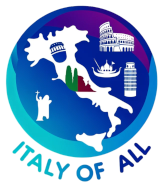The province of Imperia, situated in the Liguria region of northwestern Italy, is a picturesque area known for its stunning Mediterranean coastline, historic towns, and the cultivation of olives and flowers. Nestled between the sea and the mountains, Imperia is characterized by its beautiful landscapes, mild climate, and rich culinary heritage.
Geographically, Imperia stretches along the Italian Riviera, bordering France to the west. Its terrain is marked by rugged hills and small valleys that slope down to the sea, creating scenic vistas and ideal conditions for agriculture, especially olive groves and floral nurseries. The region includes popular coastal towns such as San Remo, known for its annual music festival and vibrant tourist life, and Porto Maurizio and Oneglia, which make up the main urban area of Imperia.
Historically, the area has been influenced by various cultures, including the Romans and later the Genoese. The province was officially formed in 1923, combining the historical areas of Oneglia and Porto Maurizio. Throughout its history, Imperia has been a significant maritime hub, with a strong tradition in shipbuilding and commerce, which has shaped its development and local economy.
Culturally, Imperia is rich in Italian Riviera charm, with numerous festivals and events that celebrate its maritime and agricultural heritage. San Remo’s music festival is one of Italy’s most famous cultural events, attracting visitors and musicians from around the world. The area is also known for its historic buildings, like the Villa Grock and the numerous medieval churches that dot the landscape, offering a glimpse into the region’s past.
Cuisine in Imperia is typical of the Ligurian region, with a strong emphasis on seafood, olive oil, and fresh herbs. Local specialties include “focaccia di Recco,” a cheese-stuffed bread, and “pasta al pesto,” made with basil grown in the region. Imperia is particularly famous for its high-quality extra virgin olive oil, which is celebrated in local dishes and at the annual Olive Oil Festival in Imperia.
Economically, Imperia’s economy is traditionally based on agriculture, with a particular focus on olive oil production and floriculture, the latter being a leading industry due to the ideal growing conditions provided by the mild climate. Tourism also plays a vital role, driven by the province’s scenic beauty, cultural events, and historical sites. The coastal towns, with their marinas and beaches, attract a significant number of tourists each year.
Despite challenges such as economic diversification and the impact of seasonal tourism, Imperia is actively working towards sustainable development. Efforts to promote eco-tourism and protect its natural landscapes are key to maintaining the province’s appeal and ensuring a balanced growth.
Overall, the province of Imperia offers a captivating mix of natural beauty, historical richness, and cultural vibrancy. Its ongoing efforts to preserve its unique heritage while fostering economic and environmental sustainability ensure its continued significance in the Ligurian region and Italy as a whole.
Comuni in Imperia Province:
- Borghetto d’Arroscia
- Aurigo
- Armo
- Bordighera
- Apricale
- Borgomaro
- Bajardo
- Airole
- Aquila d’Arroscia
- Badalucco
- Castelbianco
- Camporosso
- Castel Vittorio
- Castellaro
- Carpasio
- Cesio
- Cipressa
- Dolcedo
- Diano Marina
- Costarainera
- Civezza
- Cosio di Arroscia
- Chiusanico
- Chiusavecchia
- Ceriana
- Diano Castello
- Dolceacqua
- Diano San Pietro
- Lucinasco
- Mendatica
- Imperia
- Molini di Triora
- Olivetta San Michele
- Montalto Carpasio
- Ospedaletti
- Montegrosso Pian Latte
- Pompeiana
- San Biagio della Cima
- Riva Ligure
- Pietrabruna
- Pornassio
- PergolaPerinaldo
- ** Ranzo
- Prelà
- San Bartolomeo al Mare
- Rezzo
- Pieve di Teco
- Pontedassio
- Pigna (IM)
- Rocchetta Nervina
- San Lorenzo al Mare
- Santo Stefano al Mare
- Sanremo
- Seborga
- Vallecrosia
- Taggia
- Vasia
- Villa Faraldi
- Vallebona
- ** Vessalico
- Terzorio
